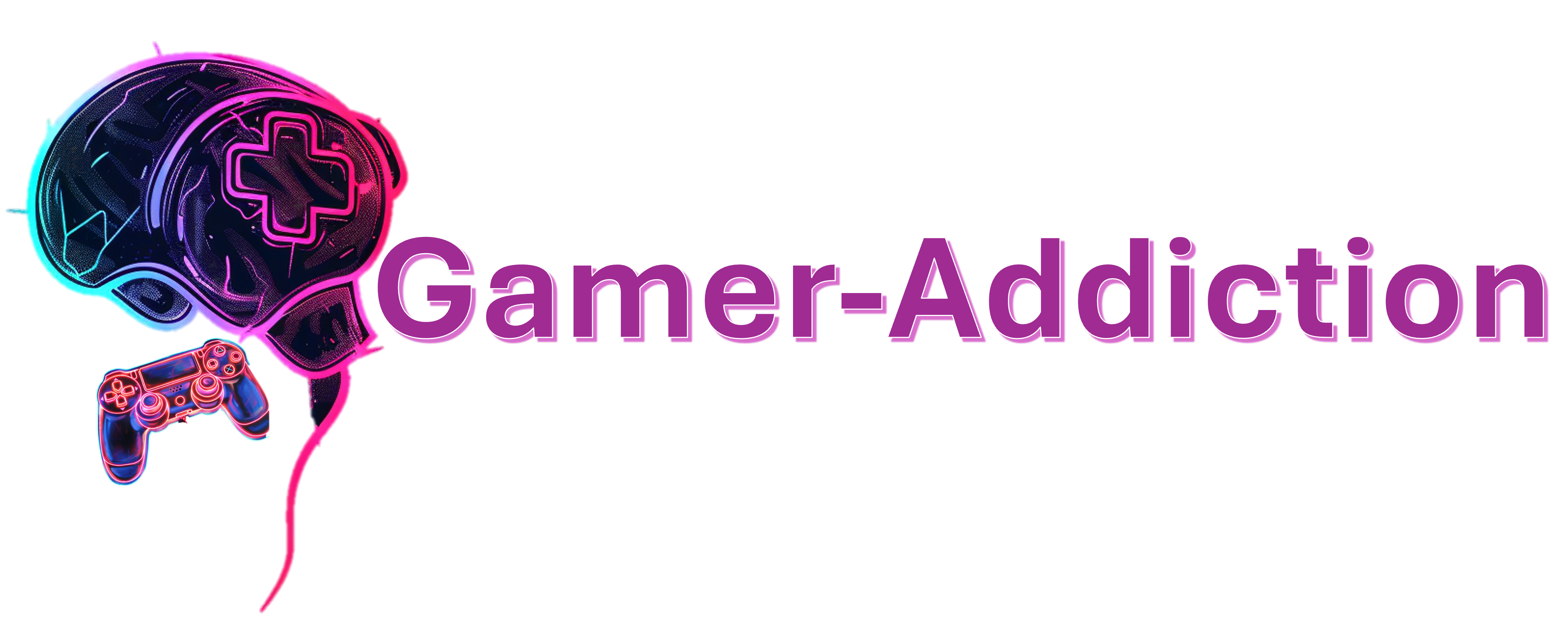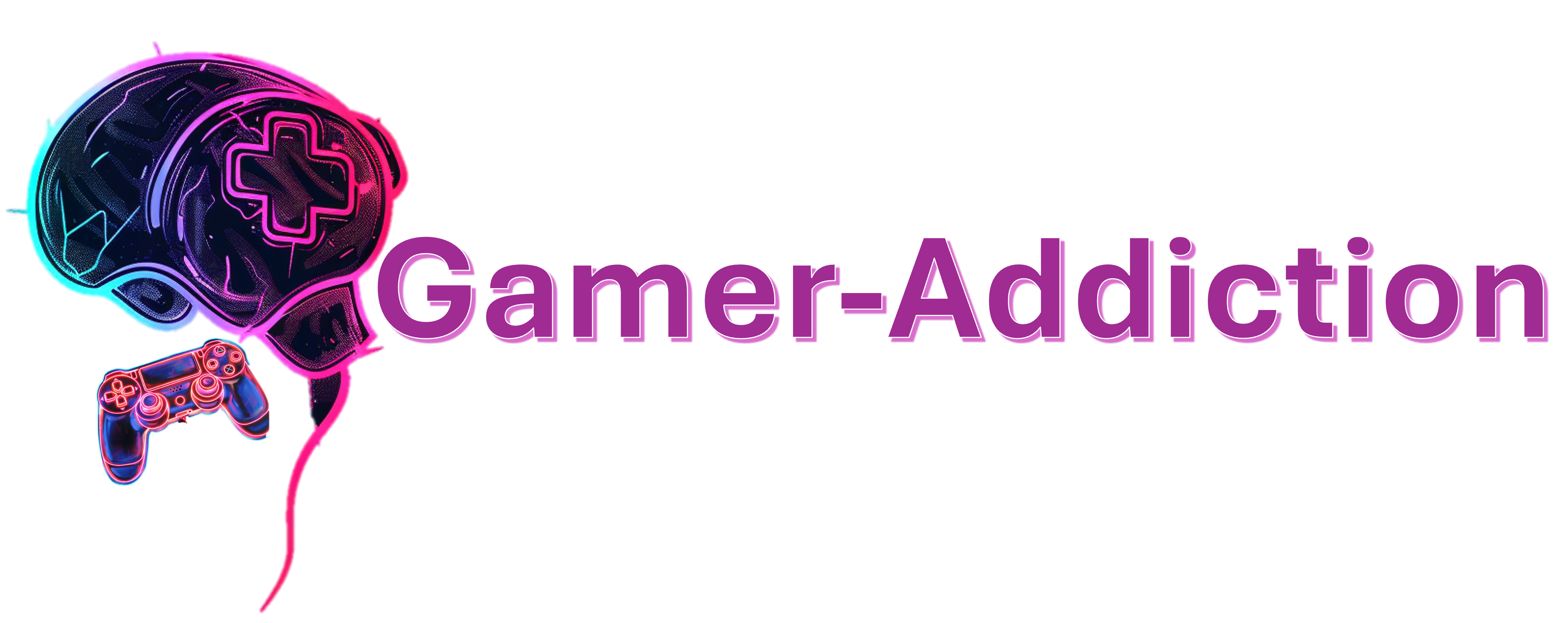
Video Game Addiction Lawsuits
Join the legal battle to hold video game companies accountable for the impact of addictive gaming practices.
***Consent to Contact: By clicking the "Submit" button above, you consent to be contacted by a representative from the appropriate service provider. Any information provided to Gaming-Addiction.com will be shared with the service provider. Information provided to Gaming-Addiction.com will not be shared, sold or provided to a data collection company unless specifically authorized.
Advertising Disclosures:
Gamer-Addiction.com aims to offer insightful educational content on its website, and it serves as a platform to connect readers with companies or legal professionals from whom we may receive compensation. We only recommend companies or individuals that we have preliminarily vetted and believe would benefit our readers. We do not endorse products or services solely for financial gain. Nonetheless, we advise you to compare the offerings and prices of various companies or professionals and conduct your own research. Keep in mind that experiences can vary and may evolve.
About Video Game Addiction
Video game addiction, recognized as a mental health disorder by numerous health organizations, refers to the compulsive and uncontrolled use of video games, often to the detriment of an individual's physical, social, and psychological well-being. This condition transcends mere enthusiasm for gaming, evolving into a dependency that interferes with daily life. Understanding this addiction is crucial as it not only affects the individual but also impacts families and communities.


Signs of Addiction
Recognizing the signs of video game addiction can help in seeking timely intervention. Common symptoms include:
- Increased Time Spent Gaming: Gradually spending much more time playing than originally intended.
- Neglect of Personal Responsibilities: Skipping chores, work, or school to play video games.
- Social Withdrawal: Reducing social interactions with family and friends to game more.
- Emotional Changes: Experiencing feelings of irritability, anxiety, or depression when not playing.
- Physical Symptoms: Suffering from headaches, eye strain, or neglect of personal hygiene.
- Tolerance: The need to spend increasing amounts of time playing games to achieve satisfaction.
- Failed Attempts to Quit: Repeated unsuccessful efforts to control or cease gaming activities.

Understanding and Overcoming Video Game Addiction
Understanding Video Game Addiction: Design Tactics and Impact on Child Development
Understanding Video Game Addiction: Design Tactics and Impact on Child Development
Video game addiction is increasingly recognized as a significant mental health concern, particularly affecting children and adolescents whose brain development makes them especially susceptible to addictive behaviors. This addiction isn't just about playing too much; it's about how games are designed to hook players and the profound impact they can have on young minds.
The Nature of Video Game Addiction
Game Design: Crafting Addiction
Developers employ sophisticated psychological strategies to make games addictive. These tactics are not accidental but are a deliberate part of game design intended to increase player engagement and, consequently, revenue. Key strategies include:
- Compulsion Loops: These are designed to hook players by rewarding them for completing tasks with points, new levels, or items that enhance the gaming experience. These loops are carefully crafted to make the reward frequent enough to keep the player engaged, but spaced out enough to keep them playing longer.
- Variable Rewards: Modeled after gambling techniques, this involves rewards that are given out unpredictably. This variability triggers a dopamine release similar to that seen in gambling addiction, reinforcing the gaming behavior.
- Social Features: Features such as online leaderboards or shared quests encourage peer interaction within the game, creating social obligations to return, which can mimic real-world social interactions and feel just as obligating.
- In-Game Currencies and Microtransactions: These often blur the line between spending real money and virtual gains, making players more likely to invest financially and psychologically in a game.
Impact on Child Brain Development
Video games impact child brain development in significant ways, which can be both positive and negative. However, in the context of addiction, the effects are concerning:
- Reward Systems: Video games can hyper-stimulate the reward system in the brain. Regular and prolonged exposure to these high levels of stimulation can make real-world rewards seem less satisfying, making everyday activities dull in comparison to gaming.
- Impulse Control: Development of the prefrontal cortex, which governs decision-making and impulse control, is incomplete in children and teens. Video games that demand and reward quick reactions can hinder the development of patience and self-control.
- Emotional Development: Video games that are highly competitive or that include a lot of violent content can affect emotional development. Difficulty managing emotions, increased aggression, and desensitization to violence are possible negative effects.
- Social Skills: While some games can enhance certain types of social skills or connections, excessive gaming can lead to social isolation and poor social skill development in real-world situations.
Causes of Addiction in Children
Children are particularly vulnerable to video game addiction due to several factors:
- Neurological Development: The brain’s dopamine system, which helps control the pleasure centers, is not fully developed, making children more susceptible to the rewards of gaming.
- Psychological Factors: For some children, video games offer an escape from reality, particularly if they are experiencing stress, anxiety, or depression.
- Environmental Influences: Lack of supervision or restrictions on game time can contribute to uncontrolled gaming habits.
Video game addiction is a multifaceted issue involving the intricate design of games themselves and their interaction with the unique aspects of child brain development. As we become more aware of the addictive nature of these games, it becomes crucial for parents, educators, and policymakers to take steps to mitigate these risks by promoting healthy gaming habits and supporting regulations on game design practices. Understanding these dynamics is the first step toward protecting our children from the potential downsides of gaming while allowing them to enjoy and benefit from its more positive aspects.
Causes and Consequences of Video Game Addiction

Causes
Understanding the factors that lead to video game addiction is essential for prevention and treatment. Addiction can be driven by a combination of psychological, social, and environmental factors, each contributing to the development of compulsive gaming behaviors.
- Psychological Triggers: For many, video games offer an escape from reality—a place to avoid stress, anxiety, or depression. The immersive worlds and complex narratives provide relief from personal issues or mental health challenges, potentially leading to dependency.
- Social Influences: Social interactions within games can also be a significant factor. Multiplayer games create communities that facilitate social connections, making players feel part of a group. This belonging can become compulsive, with players feeling pressure to keep playing to maintain these relationships.
- Environmental Factors: Accessibility plays a crucial role. The more readily available a game is, the easier it is to play excessively. This accessibility, combined with a lack of parental or self-regulation, can quickly lead to habitual, uncontrolled gaming.
- Reward Systems: Games are designed with sophisticated reward systems that mimic those of gambling, delivering high levels of intermittent dopamine (pleasure chemical in the brain) releases. These systems can make stopping play difficult, particularly for individuals susceptible to addiction.


Consequences
The impact of video game addiction extends beyond the screen, affecting all aspects of an individual's life. The consequences can be severe and far-reaching.
- Physical Health: Extended periods of gaming can lead to a sedentary lifestyle, contributing to obesity, carpal tunnel syndrome, sleep disturbances, and back or neck problems. The intense focus on screens can also cause eye strain and headaches.
- Mental Well-Being: Addiction can exacerbate or lead to mental health issues such as depression, anxiety, and even personality disorders. The constant need for stimulation from games can diminish interest in other life aspects, leading to emotional withdrawal and isolation.
- Social Life: As addiction takes hold, social interactions outside of gaming can decrease. This withdrawal can lead to isolation and a breakdown of social skills, affecting relationships with family and friends and increasing feelings of loneliness and depression.
- Career and Academic Impact: Video game addiction can negatively affect one's career or academic performance. Excessive gaming can lead to decreased productivity, absenteeism, and a lack of career advancement. For students, this often results in poor academic performance and reduced educational opportunities.

Treatment and Recovery from Video Game Addiction
Overcoming video game addiction is a multi-faceted process, involving various treatment strategies tailored to individual needs. Recovery is possible with the right support and resources. Here’s a guide to understanding the treatment options available, their effectiveness, and where to find help.
Treatment Options
1. Therapy- Cognitive Behavioral Therapy (CBT): CBT is particularly effective for treating video game addiction. It involves working with a therapist to modify the thoughts and behaviors that contribute to the addiction, developing healthier coping mechanisms and changing gaming habits.
- Family Therapy: Since video game addiction often affects family dynamics, involving family members in therapy can be beneficial. It helps to address communication issues and improve the supportive environment at home.
- 12-step Programs: Similar to other addiction support groups, 12-step programs for gaming addiction provide a structured approach to recovery, emphasizing peer support and regular meetings.
- Online Support Forums: These can offer accessibility and anonymity, providing a platform for sharing experiences and strategies for coping with addiction.
3. Medication
While there are no medications specifically approved to treat video game addiction, some medications used for treating other addictive disorders, such as antidepressants or anti-anxiety meds, can be helpful in managing symptoms of co-occurring disorders, thereby reducing the urge to engage in gaming.
4. Lifestyle Changes
Encouraging physical activity, promoting social interactions outside of gaming, and establishing a balanced daily routine can significantly aid recovery.
Success Rates: The success of treatment varies based on the individual's level of addiction and their commitment to recovery. Here are some insights:
- Therapy: Individuals who engage in CBT often see significant improvements, with reduced gaming time and better emotional regulation.
- Support Groups: Success often depends on personal engagement and the level of peer support, with many finding new coping skills and decreased feelings of isolation.
- Medications: These can be effective for treating underlying issues like depression or anxiety, indirectly reducing the compulsion to game.
Resources
Finding the right help is crucial for recovery. Here are some reputable organizations and resources that can assist:
- Game Quitters: Offers extensive resources, community support, and recovery programs specifically designed for quitting video games. https://gamequitters.com/
- Online Gamers Anonymous: A 12-step program based on the model of Alcoholics Anonymous, providing community support and recovery resources. https://www.gamingaddictsanonymous.org/
How A Lawyer Can Help
Call Now: (866) 314-3992
Gaming addiction can have severe impacts on an individual's relationships, career, and health. Those affected may be able to hold game manufacturers accountable and seek compensation for medical and psychological care. Given the rarity of gaming addiction claims, it's crucial to engage an attorney with relevant expertise.
Our Partners are at the forefront of challenging the multi-billion dollar gaming industry, particularly in cases involving addicted youth. A skilled and empathetic legal team can:
- Assess the viability of your case
- Identify responsible parties
- File a gaming addiction claim on your behalf
- Compile necessary evidence to substantiate your claims
- Negotiate to secure a just compensation
Potential compensation for gaming addiction might cover expenses for medical care, mental health treatment, and other related hardships. Our firm is actively working to influence gaming companies, such as Microsoft and Epic Games, to alter their product designs to mitigate addiction risks. A successful lawsuit could lead to significant changes in how games are developed.
If gaming addiction has affected you or someone you know, assistance is available.
Frequently Asked Questions
This FAQ aims to shed light on video game addiction and provide a better understanding that aids in managing or overcoming this condition. If you have more specific questions or need further assistance, please refer to our resources section or contact a professional.
Common Questions
Q1: What is video game addiction?
A: Video game addiction is a behavioral disorder characterized by the compulsive use of video games to the extent that it interferes with everyday life. Individuals with this addiction find it difficult to control the amount of time they spend gaming, despite facing negative consequences in their personal, social, or work lives.
Q2: How do I know if someone is addicted to video games?
A: Key signs include excessive time spent playing games, neglect of personal and professional responsibilities, withdrawal symptoms when not playing, loss of interest in other activities, and continued gaming despite it causing social or personal harm.
Q3: Can video game addiction be treated?
A: Yes, there are effective treatments for video game addiction which include therapy, medication, support groups, and lifestyle changes. The right approach depends on the individual's specific needs and circumstances.
Q4: Are there risks associated with casual gaming?
A: Casual gaming is generally not harmful and can be a healthy part of life when managed properly. Problems may arise when gaming becomes compulsive and displaces other important activities or responsibilities.
Myth Busting
Myth 1: Video game addiction isn’t a real addiction.
Fact: Video game addiction is recognized by many health organizations, including the World Health Organization, which classifies it as a diagnosable condition known as "Gaming Disorder" in their International Classification of Diseases.
Myth 2: Playing video games is always harmful.
Fact: Not all gaming is harmful. Video games can have benefits, such as improving coordination, problem-solving skills, and fostering social connections. It's the excessive and compulsive use that leads to negative consequences.
Myth 3: Video game addiction only occurs due to lack of self-discipline.
Fact: Video game addiction, like any addiction, involves complex interplays of psychological, social, and biological factors. It's not merely a result of personal weakness or a lack of willpower.
Myth 4: If you don’t play every day, you can’t be addicted.
Fact: Addiction is not solely about how often you engage in an activity, but how that activity affects your life. Even if someone does not play daily, they can still suffer from addiction if their gaming is causing significant problems or distress.
Myth 5: Stopping gaming immediately is the best way to deal with video game addiction.
Fact: While ceasing play is a necessary step, most individuals benefit from a structured approach to recovery that may include therapy, support systems, and gradual reduction if needed. Abrupt withdrawal without support can be challenging and less effective.
Resources & News
Stay informed with our curated selection of articles and blogs designed to deepen your understanding of video game addiction. Below, you'll find insightful resources that explore various facets of this condition, alongside updates on the latest research to ensure you have access to current and comprehensive information.


Educational Content
Keywords: Attention Deficit Hyperactivity Disorder (ADHD); Coherence Analysis; Internet Gaming Disorder; Quantitative Electroencephalogram; Spectral Analysis
Keywords: treatment of addiction, addiction, internet gaming disorders, mechanism of addiction, video game addiction
Keywords: Attention Deficit Hyperactivity Disorder (ADHD); Coherence Analysis; Internet Gaming Disorder; Quantitative Electroencephalogram; Spectral Analysis
Keywords: brain imaging; control inhibition; cue reactivity; decision making; fMRI; internet gaming disorder; reward.
News & Updates
AXIOS Atlanta – March 5, 2024
Bloomberg Law – December 7, 2023
ABC News – November 30, 2023
Arkansas Democrat-Gazette – November 13, 2023
Take Action Against Video Game Addiction
Or Call: (866) 314-3992

© 2024 Gamer-Addiction.com
